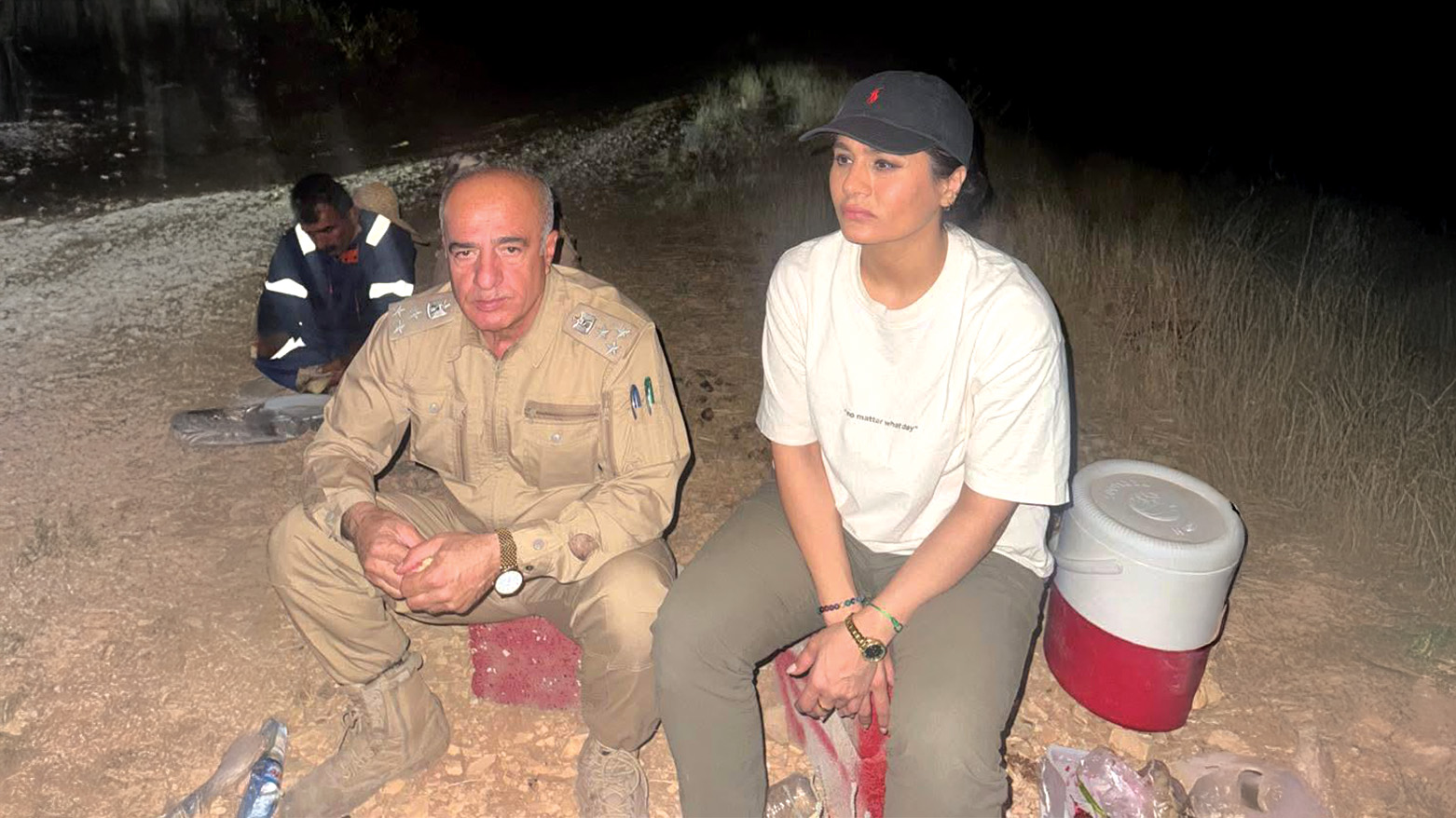Deadly Wildfire Rages in Halabja, Kurdistan Region; Two Killed, Authorities Declare Mourning
“So far, the fire has engulfed three villages, and despite relentless efforts, it has not been fully brought under control,” Zanyar Omar, spokesperson for Halabja Civil Defense, told Kurdistan24.

ERBIL (Kurdistan24) — On the directive of Kurdistan Region Prime Minister Masrour Barzani, Minister of Interior Rebar Ahmed on Monday extended condolences to the families of two victims who lost their lives while battling a massive wildfire in Halabja province.
The Kurdistan Regional Government’s (KRG) General Directorate of Civil Defense announced that a volunteer citizen and a forestry police officer were killed as they tried to contain the blaze that erupted on Sunday, August 17, in the forested areas of Halabja. The fire has caused extensive damage to local farmland, forests, and the surrounding ecosystem.
Minister Ahmed contacted Halabja Governor Nukhsha Nasih and Halabja Civil Defense Chief Brigadier Abdin Abdulrahman Mohammed to convey Prime Minister Barzani’s message of grief and solidarity, stressing the government’s full commitment to support the province in controlling the fire and minimizing losses.
The Civil Defense Directorate confirmed that ten firefighting teams have been deployed to the scene, though strong winds have hampered containment efforts. “So far, the fire has engulfed three villages, and despite relentless efforts, it has not been fully brought under control,” Zanyar Omar, spokesperson for Halabja Civil Defense, told Kurdistan24. He added that more reinforcements have been requested, while the exact cause of the fire remains unknown.
According to the Directorate, hundreds of acres of land, orchards, and forested areas between the villages of Chnar and Mordin have been scorched over the past two days.
Halabja Governor Nukhsha Nasih declared two days of public mourning to honor the victims, ordering the Kurdistan flag to be flown at half-mast on all official buildings in the province. All festive activities and celebrations will be suspended during this period.
Minister Ahmed expressed appreciation to the civil defense forces, forestry police, and other security units for their continued efforts, despite the difficult conditions.
Halabja holds a deeply symbolic place in both Kurdish and modern Iraqi history. The city came to international attention on March 16, 1988, when Saddam Hussein’s Ba’athist regime launched a large-scale chemical weapons attack against its civilian population. In a single day, a combination of mustard gas and nerve agents killed an estimated 5,000 people, most of them women and children, while thousands more were left with chronic illnesses, respiratory diseases, and long-term genetic disorders.
The massacre—widely regarded as the deadliest chemical weapons attack against a civilian population in history—became a defining moment of Kurdish suffering and a lasting scar in the collective memory of the Kurdish people.
For decades, Halabja was administratively part of Sulaimani province, despite its distinct history and the weight it carried as a symbol of Kurdish resilience. After years of public demand and political lobbying, the Kurdistan Regional Government (KRG) officially elevated Halabja to the status of the fourth province of the Kurdistan Region in March 2014, a decision later recognized by the federal government in Baghdad.
Today, Halabja stands as both a provincial capital and a living monument to the tragedies endured by the Kurds under Saddam Hussein’s regime. Annual commemorations of the 1988 attack draw local and international attention, serving as a reminder of the atrocities of chemical warfare and reinforcing Kurdish calls for recognition, justice, and the prevention of such crimes in the future.

